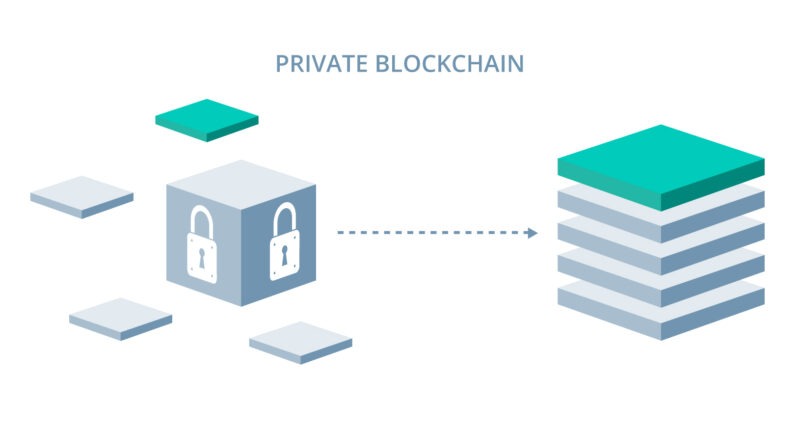You must have got a brief idea about public blockchain as we have seen public blockchain in detail in the previous article. Now let’s move to the private blockchain, its advantages and disadvantages, and, its use cases which can help you to understand it in a better way.
Listen to the full article on audio
Definition: A private blockchain can be defined as a blockchain that is under the control of an entity. It works in a constraining domain.
If any privately-held company or organization wants to have internal use-cases then Private blockchains are the best choice for them. Only selected participants can access the blockchain network which indeed gives security to the blockchain network. The organization can also have rights to set different parameters to the network, including accessibility, authorization, and so on! this also boosts trust for the network.
Still, you must be having doubts about how is it different from a public blockchain? The way of accessing is different. Else, it offers the same set of features as that of the public blockchain, providing transparency, trust, and security to the selected participants. One more key contrast is that it doesn’t have a decentralized theoretical nature.
A private blockchain is considered a permissioned blockchain in many cases. However, the permissioned blockchain can include public blockchain as well so its concept is broader.
What Are the Advantages?
Fast transactions: There are few participants in the private blockchain compared to the public blockchain. So, we can say that it is fast and quick and, it takes less time for the network to reach consensus resulting in faster operations which helps to increase its performance.
Improved scalability: Private blockchains are more scalable and flexible. The reason behind this is, in a private blockchain, only a few nodes have the right to validate transactions. This means the private blockchain will work at its previous speed and efficiency even if the network size goes bigger. The key here is the centralization aspect of decision-making.
What Are the Disadvantages?
As the centralized nodes make the last call so, there can be trust issues within the private blockchain.
Another con of Private blockchains is that it is not precisely decentralized. This is one of the biggest flaws and goes against the core philosophy of distributed ledger technology or blockchain in general.
Lastly, as there are only a few nodes here with authority, the security isn’t all that good. Because it may be possible that a certain number of nodes go rogue and compromise the consensus method utilized by the private network which can impact security in a negative way.
What Are the Use Cases?
There are multiple private blockchain use-cases. Some of them are listed below.
- Supply chain management: Organizations can implement a private blockchain to manage their supply chain.
- Asset ownership: Assets can be tracked and validated using a private blockchain.
- Internal Voting: Private blockchain is also effective at internal voting.








-260x140.png)